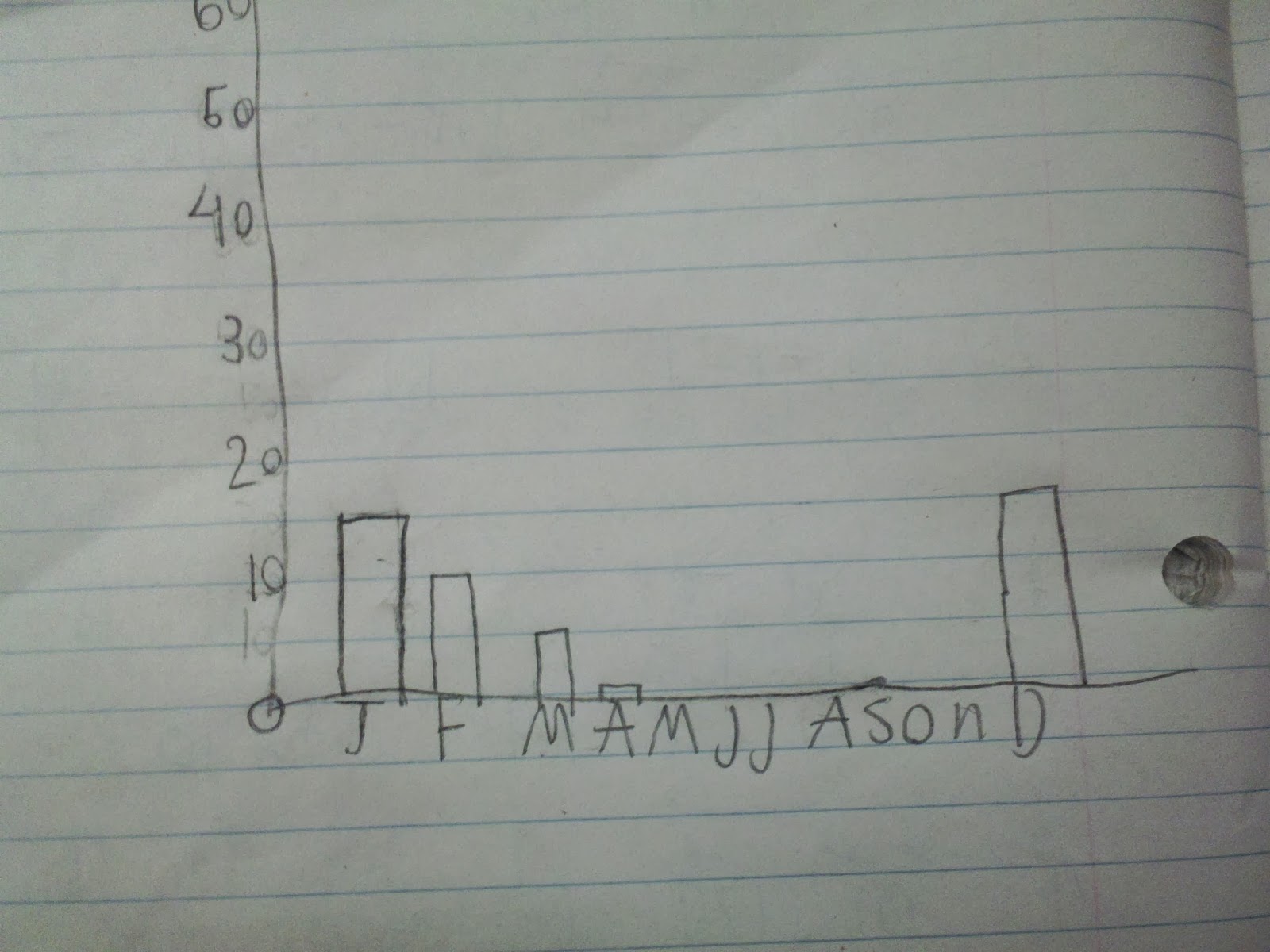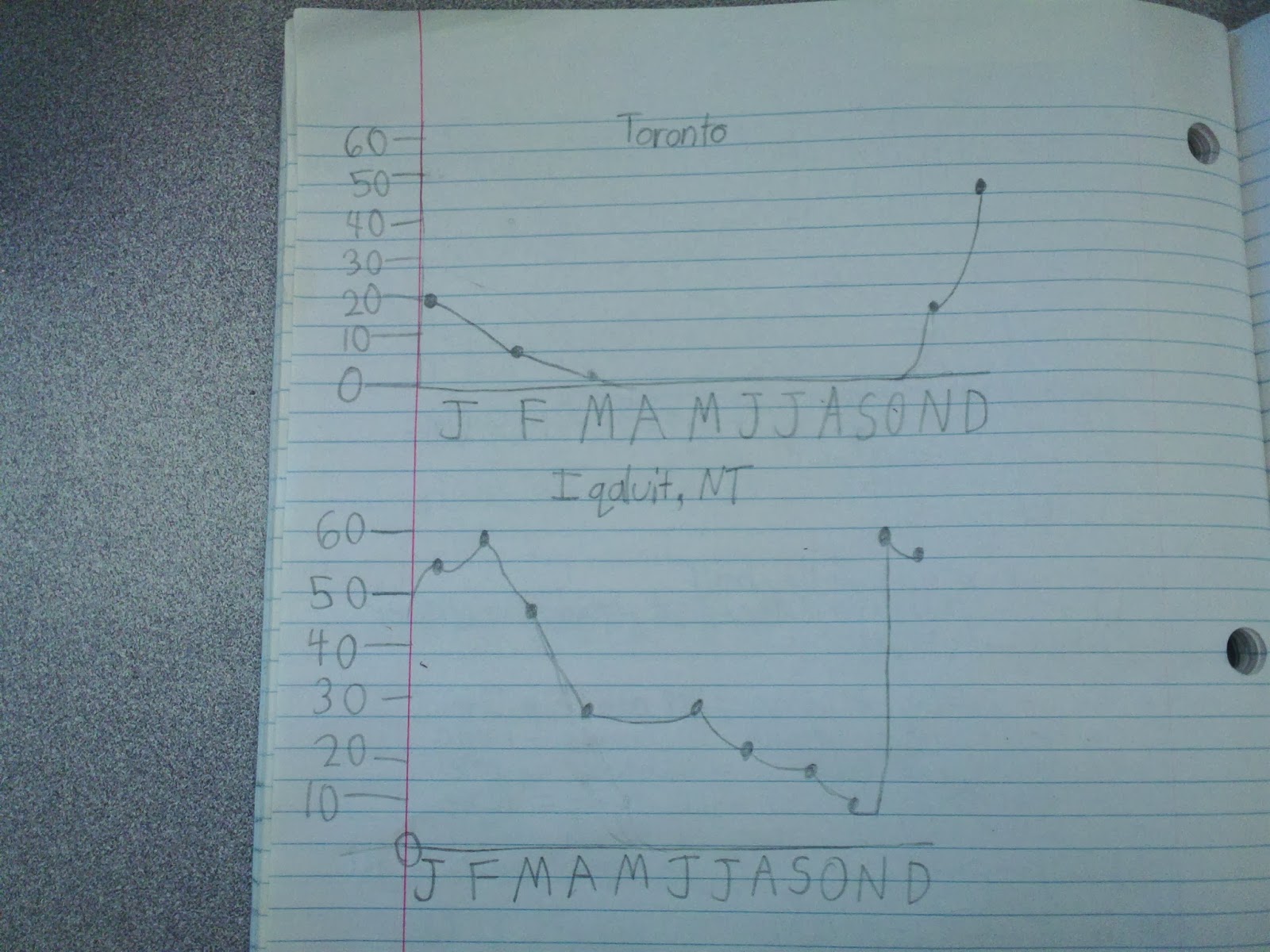Before going further, a little geography might be in order:

 We asked students to draw a graph to predict what they thought the average snowfall per month in Toronto would be. A set of axes was drawn on the board to anchor everyone to the same scale. Initially some drew bar graphs, some vertical line graphs and some broken line graphs. As our goal was interpreting line graphs, we asked students to redraw (if necessary) their graphs so that it was a line graph. This is the sort of thing we saw:
We asked students to draw a graph to predict what they thought the average snowfall per month in Toronto would be. A set of axes was drawn on the board to anchor everyone to the same scale. Initially some drew bar graphs, some vertical line graphs and some broken line graphs. As our goal was interpreting line graphs, we asked students to redraw (if necessary) their graphs so that it was a line graph. This is the sort of thing we saw:
We could then ask the students one of my favourite questions:
Look at your graphs: What is the same? What is different?
We then showed them the actual graph from a really neat site called CityStats.ca:There were some great conversations about how close their graphs were to the actual graph, even though they did not have access to the primary data. Also there was great discussion about the red line, what it meant and how it looks as if Toronto gets less snow than the Canadian average.
So we then asked them to predict what the graph for Iqaluit would look like (Iqaluit, the capital of Nunavut, is in the far north of Canada). What we saw was a graph similar to Toronto's but shifted upwards:
We then showed them the CityStats graph for Iqaluit...
... and it was neat to see everyone reflect that their answer was wrong (and they were OK with that) but to then think of reasons why that might be. Superimposing the two graphs we noticed a curious thing:
Iqaluit gets less snow than Toronto in the winter months!
This was a big surprise to all the students (and most of the adults). Various reasons were suggested as to why this might be until one girl said "Well in Science we've been learning about the water cycle and because it is so cold in Iqaluit, all the water will be frozen and so there will be not as much moisture in the air so there will be less snow". Now I'm not sure if this is the exact scientific reason, but it was a very impressive hypothesis!And a lot better than my 'It's too cold to snow' excuse.






No comments:
Post a Comment